Discovering Your Gifts And Making A Lasting Impact With Marc Lesser
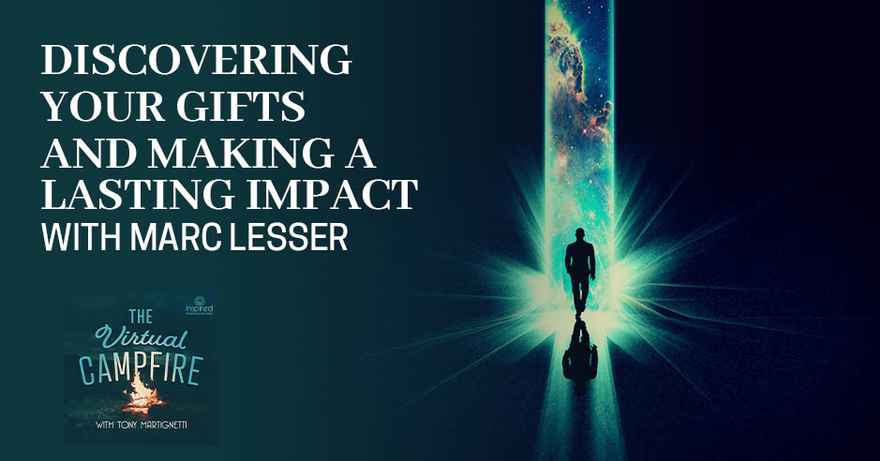
We all have individual gifts waiting to be revealed through the flash points of our lives. If we can bring our different backgrounds together and bring down communication barriers, we can unleash our full potential and leave a lasting impact to the world. In this episode, we have CEO, executive coach, and Zen teacher, Marc Lesser. He shares his incredible journey from high school wrestling, directing the Tassajara Zen Mountain Center, to authoring five books, including his latest release, "Finding Clarity." Marc takes us through the flash points in his life that led him to the surprising path of professional success. Offering valuable insights into personal, physical, and spiritual lives, Marc delivers an inspiring message for anyone who feels alone. If you're ready to achieve clarity in life, elevate your leadership, and discover the power of perspectives, this is the episode for you.
---
Listen to the podcast here
Discovering Your Gifts And Making A Lasting Impact With Marc Lesser
It is my honor to introduce my guest, Marc Lesser. Marc is a CEO, executive coach, and Zen teacher. He has founded and was the CEO of three companies. He has helped develop the Search Inside Yourself program within Google, a mindfulness-based emotional intelligence training for leaders that spread through Silicon Valley and then globally. I am happy to say I'm certified.
Marc was a resident of the San Francisco Zen Center for ten years and Director of the Tassajara Zen Mountain Center. It was the first Zen monastery in the Western world. He released his fifth book, Finding Clarity. I can't wait to fully read that book as he started cracking it open. He lives in the San Francisco Bay Area, has been married for a long time, and has 2 children and 2 grandchildren. I am so thrilled and honored to welcome you to the show, Marc.
It's a pleasure to be here. I have always loved campfires.
There is a place where great conversations happen, and not only that but great stories get passed on. One of the beauties of what we are going to do here is to hear about the journey that got you to make such a huge impact in the world. You have five books. I have read a fair amount of them and they are all brilliant. I want to hear all of the amazing things that have led you to where you are making such a big impact in the world. We are going to do that through what's called flashpoints, these moments in your life that have revealed your gifts into the world.
That sounds great. I look forward to it.
In a moment, I will turn it over to you and you can take it away. Let's see what themes are showing up and we will pause along the way and go from there. Start wherever you'd like.
There are many places we could start. Why don't I jump in high school wrestling? I was captain of my high school wrestling team. The real a-ha there was I can remember a match in which I was ahead. I looked up at the clock, tightened up, and held on in order to win. I got up as the winner and I felt like crap, and I thought, “Winning isn't everything.” It was interesting to note.
The other thing that happened in high school wrestling was I noticed that good wrestlers did want to win and didn't want to lose. The state champions seemed different. There is a different relationship that they had with winning and losing that attracted me. I wanted to be more like that and I wasn't. There was something there. That's been in some way ongoing through line in my work and my life. Maybe from a Buddhist perspective, it's like living with more non-duality. It’s not getting caught by winning and losing, by self and this fame, money, and desires. Yet, there's something about wrestling, business, or leadership. It’s having firm great aspirations for what we want to accomplish.
I'm all for ambition, especially for ambitiously solving some of the problems in our world, whether it's poverty, climate change, or racism. There's no shortage of problems in all parts of our lives, and we should be fired up, ambitious, focused, effective, and all those things. At the same time, how do we completely appreciate being alive right in the midst of all those problems and ambitions? To me, this is the brilliance or the underlying teaching of whatever you call mindfulness. I listened to Roland Griffiths who is the head of psychedelic research at Johns Hopkins and works in this. He uses the language of secular sacredness. I like that. I have never been a fan of the word secular. I have been a big fan of the word sacredness for a long time.
Maybe it's everyday sacredness, the ordinary and the sacred. Sacredness at work and life. In some way, there are many notes that got me from a small quiet suburb in New Jersey on the wrestling team to walk into the San Francisco Zen Center a few years later and decide that it was worth ten years of my life, and it did. That was huge. A lot of that was how to live and grow within that realization about ambition, goals, and the sacred.
I have to say we are off to an amazing start here. This imagery that you have evoked with the wrestler and the idea of this strength in almost brutality you think about wrestling becomes balanced with this sense of, “How can I stay calm and be the person who can see the beauty in not being violent and aggressive.” Realizing that there's also this sense of ambition and knowing when to walk away from something that maybe isn't serving.
This is all in hindsight, but I can't believe how much ways you have come from that moment and see yourself walking into that. As you said, walking into that Zen Center and deciding to go on this path. I want to start with this idea of what was the reaction of people around you when you did decide to make this big shift. They must think you were absolutely insane.
My parents sent someone out to rescue me from the cult. That person ended up at the Zen Center as well. I can understand as a parent myself that we want our children to be happy and successful. I was a pretty good student and I was at Rutgers. It was literally a one-year leave of absence to go do some exploration. I still have the letter that I wrote to my parents when I told them I was not returning and why this was the education that I needed. I'm sure this was a very difficult letter for my parents to read. For whatever reason, there was something that was calling to me.
It’s so alive and so right about being part of the San Francisco Zen Center community at that time and it also in strange and unexpected ways, opened doors for me around work and leadership. I kept getting asked to take on leadership roles, which surprised me a lot. I was asked to figure out how to farm with horses, which is something that I spent three years of my life working with these big Percheron draft horses. I'm happy that I survived it. I was asked to run Zen Monastery Kitchen, which I did for years, and that was enormous learning about a lot of what we are talking about.
It’s putting into my own being this sense of, how do you work in this stressful and high-powered situation with calm and equanimity? How do you envision producing great, healthy, and fantastic gourmet vegetarian meals for 70 or 80 overnight guests because this Zen Monastery turned into a conference center and resort in the summertime in Tassajara? Yet, there was such love and it was so much fun. I have never laughed as much and enjoyed cooking, cleaning, working, and producing great results all at the same time. I'm often invoking leaning on that experience and that time.
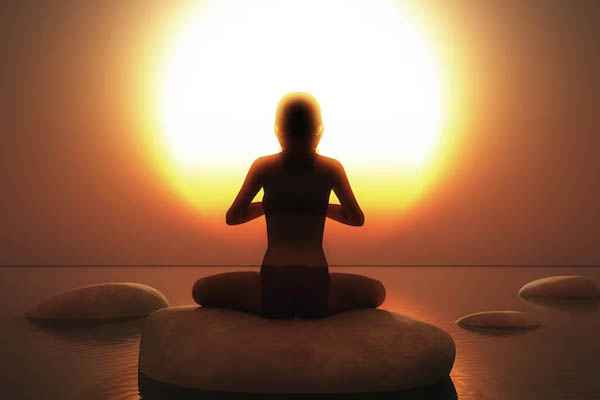
Very much when I found myself standing in front of rooms of Google engineers teaching mindfulness, meditation, and emotional intelligence, it was like, “What am I doing here? What do I have to teach these engineers?” I realized they are looking for what I was looking for and what I was learning in that Zen Kitchen. After that, I became the director, very much a leadership position at Tassajara Zen Mountain Center with a staff of 60 people and all of the usual problems, opportunities of any small business, and any leadership position. I learned a lot about myself and I continued to this day. Fast forward, leadership is a wonderful cauldron for developing ourselves.
There's something about what you shared that also had me thinking about this. The old saying of losing yourself in the service of others. That's what leadership can be like. It's like this sense of not seeing yourself as being this all-important ominous presence. It's instead seeing that you are part of a collective. We talked earlier jokingly about being a cult. This is a cult, but it's a cult in a positive way. What's important is to see this positive spin you put on this and say, “No. You see a sense of love that gets created when people come together and have a sense of wanting to do the right thing together, even if it means a lot of hard work.”
There's an expression in the Zen world that to study the way is to study the self. I would say to study leadership or to study being a human being is to study the self. To study the self is to go beyond the self. Sometimes, it's translated as to forget the self which is a little bit like what you were saying. I like to go beyond the self. The next line in this particular expression and then to go beyond the self is to find your connection or your oneness with everyone and everything. It's a beautiful prescription for leadership or even beyond. It’s studying ourselves and going beyond ourselves as a way of creating safe and live connections, relationships, and community in our companies and our lives.
To study being a human being is to study the self. To study the self is to go beyond the self.
Now we can see this connection as to how this is so important to bring this type of thinking into the workplace and how more and more companies are, first of all, starting with Google. Also, many others are seeing this need to change the way that they are building their cultures and thinking about this. There is one thing that I wanted to ask you coming about this progression that you have been on because you have been in the world of mindfulness for a long time now. You have seen a lot of changes and I'd love to hear your general thoughts about what have you seen around the changing trends in this field which has been around for centuries but from a Western perspective hasn't been as long-lived.
In some way, what we inherited in our work culture and worldwide is this sense of keeping humanness and the human element out of the business. We have been in the sense of an assembly line mentality. You look at org charts and the way businesses, Henry Ford had a lot to do with it. It was important at that time, the sense of productivity. That sense of productivity got brought into our workplaces even now. Little by little and fairly quickly in some way, there is some realization of how essential the human element is, the emotional intelligence piece, and the mindfulness piece. People are having the vision and then the experience of that when you bring in the human element.
Not only is it gets in the way of productivity, but it also enhances and supports collaboration, creativity, well-being, and all of those things. It's a bit hard to grasp it. It's a bit contradictory in nature that more humanity and more productivity. Places like Google depend on collaboration more and more, especially now when there's so much virtual work. It's so highlighted the importance of collaboration. Emotions and emotional intelligence are even harder because we are not in the same place, but they remain essential to get things done.
It’s funny, my shirt says, “Yes and.” The sense of yes and here is that we need humanness, but we also need to embrace technology and neither of them can operate on their own. We need both elements to work in concerts. It's not about turning away from technology. It's about embracing technology, but also seeing that humanity has to be there as well and allowing that to be embraced.
Technology without passion is dangerous or technology without wisdom, passion, and vision. Why are we creating this technology? What are the unintended consequences of that? There are some pretty big unintended consequences in creating nuclear weapons, but we are seeing them now with the mental health of teenage girls. How much of that is being undermined by technology, the way that social media is being used, and this constant sense of comparative mind? We all have a comparative mind but if we lack the experiences and wisdom needed to balance that, it causes great problems for not only young women but young boys as well.
Technology without passion, wisdom, and vision is dangerous. It loses its purpose and leads to big unintended consequences.
I feel like we could go so deep into this. However, I want to take a moment and get back on your timeline and see if there's another moment, a flashpoint, that you wanted to bring to the surface that revealed more of you.
I left the Zen Center after ten years and went pretty much right into getting an MBA degree, which was hard times. I missed leaving my Zen Center community, leading my role and status in a way that I had as a leader. Suddenly, I was older than most of the people in business school who didn't have any real experience that anyone could understand.
From there, I started my first company. I had this idea of creating things out of recycled paper. When I look back, it's like, “Was it craziness, chutzpah, courage, or whatever it was to start a company.” I launched in my garage one of the first companies in the world to make things out of recycled paper. We were making greeting cards, calendars, and journals. That was a fifteen-year ride being CEO of that company and taking it from an idea. At one point, we had 25 employees and we were licensing the words of the Dalai Lama, Thich Nhat Hanh, poetry of Rumi, and Yogi Berra. That was lots and lots of financial challenges and people challenges. I feel like I cut my teeth in terms of leadership being in that role and growing the company.
When it was time for me to leave, it was a hard exit. I will share. I was fired from the company I started. I had told my board that I was ready for a change. I didn't think it was going to happen the way it happened, but ouch. It was a few years later that I got a call about how would I like to help start a mindfulness and emotional intelligence program in Google headquarters but there was no budget. That ended up being an enormous change and growth point for me in the people that I got to work with there and what I learned about the languaging and programs for bringing this deep work into places like Google. People thought I had a lot more experience than I did in terms of teaching or doing trainings. I was nervous and self-critical in those early years.
I found myself up in front of rooms next to Stanford scientists, leading engineers, and Zen teachers. Little by little, I found that I love teaching and program development. At some point, I got asked if I would lead a company to take this work out into the world. I discovered that even now, I would say that my sweet spot is I love the combination of strategy, leadership, teaching, and working one-on-one with people, whether it's through direct reports. At this time in my life, it's through doing executive coaching. I like designing my life so that I can do all of those things. There's a nice mix of those things and in some way, I feel like it's both maybe where I can offer the most in terms of how I can make the best use of myself in the world. The good news is I like that combination of things.
There's something about what you are bringing up. One of the throughlines of your life is this sense of never feeling like you have to put yourself in a box or realize that there's a limit to what's possible. Also, not necessarily feeling that you have to be super ambitious to the point where you are beating yourself up to do something that you are not.
I have to recognize the combination of privilege, luck, and timing. I feel such appreciation for the things that I have gotten to do in this life despite how worried my parents were when I dropped out of college. I went to the Zen Center and how so much of my life has been built on that experience and continues to in a way. The writing that I do is often that mix of work, pragmatism, and poetry.
I wrote an article a while back called One Thing Can Change Everything. When you think about it, that one decision that you made changed everything, even if there were many other decisions that came along that shifted you more. If you hadn't walked into that Zen Center, I wonder what would have been different. Where would you have ended up?
I remember I did take some pre-med classes when I was in college and I had the mistaken belief that I wasn't smart enough to be a doctor. Interestingly, these beliefs have informed us about ourselves. At the same time, I also had the wisdom to know that wasn't my path and that there was some other work that I needed to do first.
The limiting beliefs we have informed about ourselves can sometimes make us see that we’re not on the right path.
I want to jump into the books. You have been writing a lot of amazing books and I want to hear what got you into this process of saying, “I can write a book.” Maybe share some of the insights about your new book.
I wrote a paper when I was in business school right after I left the Zen Center. The book In Search of Excellence is one of the bestselling business books ever. It goes way back to the early-'80s by Tom Peters. I’m comparing that book with Zen Mind, Beginner's Mind. Out of that paper, I thought, “This could be a book.” That turned out into my first book called Z.B.A. Zen of Business Administration.
A lot of that book was around my CEO's stories of growing my publishing company, which is called Brush Dance. That was one of those books where the proposal got turned down by pretty much every publisher. I got a call one day from a small publisher called New World Library saying, “We love this book. We want to do it.” They are right now publishing my fifth book, which is called Finding Clarity, and I got copies of it. It's called How Compassionate Accountability Builds Vibrant Relationships, Thriving Workplaces, and Meaningful Lives.
There’s a wonderful endorsement. Jon Kabat-Zinn on the front cover said, “Paying attention to Marc's approach may not only transform your business. It may literally transform your life.” I was moved that Jon read my book, liked my book, and wrote some nice things about it. When this book came, I was drawn to compassionate accountability. Finding effectiveness and how much of our lives in work and in all parts of our lives are around alignment. How do we align with others? How do we deal with conflict? How do we deal with differences? How do we find alignment right in the midst of conflict?
I'd say all my books are personal. We write what we are working on. Working skillfully with conflict never has come easily or naturally to me, and I would say that's true of most leaders, not all, but many leaders. It's such an important skill to develop, especially as a leader. How do we work skillfully and compassionately with conflict and differences? How do we hold ourselves and each other accountable? How do we grow and learn in that realm and how do we do it with both effectiveness and grace? That's what this book is about.
There's something about all of the ways that you show up in this conversation, but in general, this balance that you have to strike. It comes back to when I think about the Eightfold Path of Buddhism. This sense of like, “You can't be all the way one way or the other. It has to be about knowing how to strike that balance between these two.” People think of compassion and accountability as being two opposing opposites. In some ways, they can feel that way, but the reality is when you strike the balance between both, you have this beautiful power that comes across.
I know language is limiting. To me, it's a balance, but the balance is becoming wholeheartedly good on both ends of the spectrum. Fully accountable, no holding back in one's accountability, and fully compassionate, no holding back in compassion. This is an important distinction. It's not about finding some middle ground like, “I'm accountable.”
A little bit like the kinds of contradictions. Paradox is the word I was looking for. I'm a big fan of paradox which by definition is something that doesn't appear true but is. Compassion and accountability don't appear true that you could be fully embodying both, but in fact, it's true. Same with ambition and equanimity for example, or even success and failure. I could describe my life as a complete failure. One failure after another. We could talk about my failure. I was fired from the company I started. That's one of many, but I could also describe my life as a complete success. I have had many successes, so it's not like I don't have to define myself either way.
Compassion and accountability do not appear true that you could be fully embodying both. But in fact, they are true.
You said about language and even in that statement, “I was fired from the company I started.” You started a company, that's a win, and you were fired from it. It's a loss but at the end of the day, the overall completion of that sentence is it has both a win and a loss inside of it. Either way, you are winning. It's a win. It seems like there's a sense of you can't look at it as one way. It's both ways.
In truth, I was devastated to be fired. It hurt deeply and for a while. It also led to what was next. It created an opening to be able to say yes when I was asked to come create a program at Google. One of the stories I tell is that before I was fired, it was when I was starting to have questions about what I wanted to do. A mentor of mine took me out to breakfast and looked me in the eye and said, “It's time for you to leave this publishing company.”
My first reaction inwardly was, “She doesn't think I'm a good leader.” She said, “No. You have much bigger things to do with your life than running this company.” I looked at her and said, “Like what?” She said, “That you will have to figure out.” Knowing when our hearts aren't in the companies we start, in our jobs, our relationships, how we work with that, and feeling that transitions.
I love the way you navigate through these situations. I know that it's all hindsight when you look back and the learnings we have in these situations are what we can pass on to others to help them to navigate their own challenges. I want to hear from you about some of the things that you have learned about yourself that you want to share with others, and then things that you haven't shared already that you want to share.
One of the screens that I use right now to decide what I want to be doing is, does it have an impact? The impact is interesting. Impact doesn't necessarily mean scale. The impact can mean, “Can I positively influence one person's life?” Sometimes scale. Scale can be great, but depth can be great too. Depth and scale together are the best.
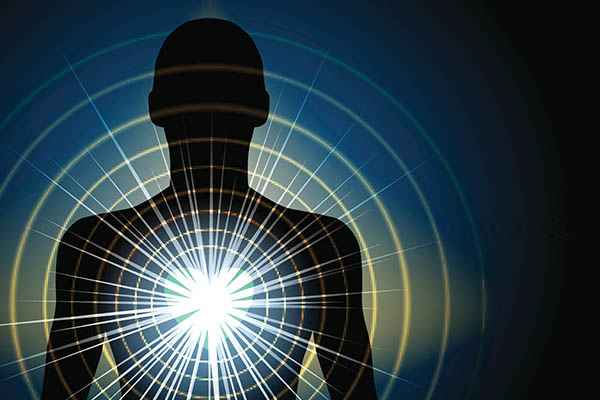
Am I enjoying what I'm doing and does this drive my financial sustainability goals? These are useful questions that I have found, especially for entrepreneurs and business leaders. Even artists, impact, joy, and the financial piece. People ask me, “What do you do? How do you describe what your work is?” One way that I sometimes do is say, “I like starting things. I like growing companies and building brands.”
In between that, I do coaching, consulting, and work with other people. I'm in one of those places now where, “Is there a next company?” I see the pros and cons of having a team and a company versus the joy of being a one-person business. Although even now, I have a team of consultants that I work with and I also love writing. I'm surprised by how much I love the process of creating through writing. I have started a podcast as well called Zen Bones. I have been enjoying having conversations with people like you.
I love this sense of following. A word that I love is your inspiration. I often say like, “Look for things that spark you up and do more of that.” If you are in control of your life, then what happens is you realize you can do a whole lot more when you follow your spark and inspiration. Instead of feeling like you have to say, “This is who I am. I have to do this because that's what people expect of me.” Instead, you realize, “I'm feeling like I want to do this now.” It's so freeing.
I noticed, especially the young Google engineers that I got to work with, a lot of them were these mindfulness programs woke them up that they were doing what their parents wanted them to do. They had never asked about what they enjoyed and what their path was. It’s just recognizing. How are we influenced by our parents and by the people around us, which can be positive, but also why are we here? These are big, difficult, and impossible questions. What brings me here?
We are not going to answer that now, but we will take it to a lighter note and go to our last question of the day, which is one I love to ask because I'm very curious. What are 1 or 2 books that have had an impact on you and why?
The first book that impacted me was when I was a freshman at Rutgers. I was blown away when I read Toward a Psychology of Being by Abraham Maslow and the idea that he presented of self-actualization. He had done this remarkable study a long time ago back in the late-'60s, maybe early-'70s. He noticed that a small percentage of people were much happier, freer, were deeper in terms of their feelings of joy and grief, and it brought home how asleep I was at that time. I felt this enormous gap between my own emotional life and what Maslow was presenting. I felt, “This is what I want to do. Whatever I'm going to do, I need to find a way to wake up and develop myself.” That was an important book.
Another book that I read probably in that time, which I now reread and recommend that people read every few years is Siddhartha by Hermann Hesse. It’s a great story. I will mention one other book that I'm rereading right now. It's a book about American history, which is a fantastic book called These Truths by Jill Lepore. She's a writer for The New Yorker Historian and a beautiful writer and amazing to see through her very brilliant lens in American history. It’s super good book. I read way too many books. I could mention I love reading. I read poetry, leadership, and spirituality. I'm rereading Zen Mind, Beginner's Mind. I'm using that book in a Zen practice period that I'm teaching. Those are some top-of-mind books.
I love the mix. There's something to be said about that. When you bring different types of books into your life, they work off each other and give you a different perspective. What an amazing mix of books. Thank you so much, Marc. This was amazing. I am so honored and thrilled to have this conversation with you.
Thank you, Tony. What a treat to get to hang out around the campfire with you and very little smoke, so it's good.
Nobody got hurt. Before I let you go, I want to make sure that people know where to find you and what's the best place to reach out if they want to learn more.
My website is MarcLesser.net. There's way too much information about me and access to my books, especially my newest book, Finding Clarity, which I'm excited about coming out in April 2023.
I got an advanced copy, so I got a chance to read a little bit of it, which is awesome. I can't thank you enough. This was so brilliant. Thanks for coming on the show and thanks to readers for coming on the journey. I know you are leaving with so many great insights. Go buy the book and thanks again.
Important Links
- Tassajara Zen Mountain Center
- Finding Clarity
- One Thing Can Change Everything
- In Search of Excellence
- Zen Mind, Beginner's Mind
- Z.B.A. Zen of Business Administration
- Zen Bones
- Toward a Psychology of Being
- Siddhartha
- These Truths
- MarcLesser.net
Love the show? Subscribe, rate, review, and share! https://www.inspiredpurposecoach.com/virtualcampfire


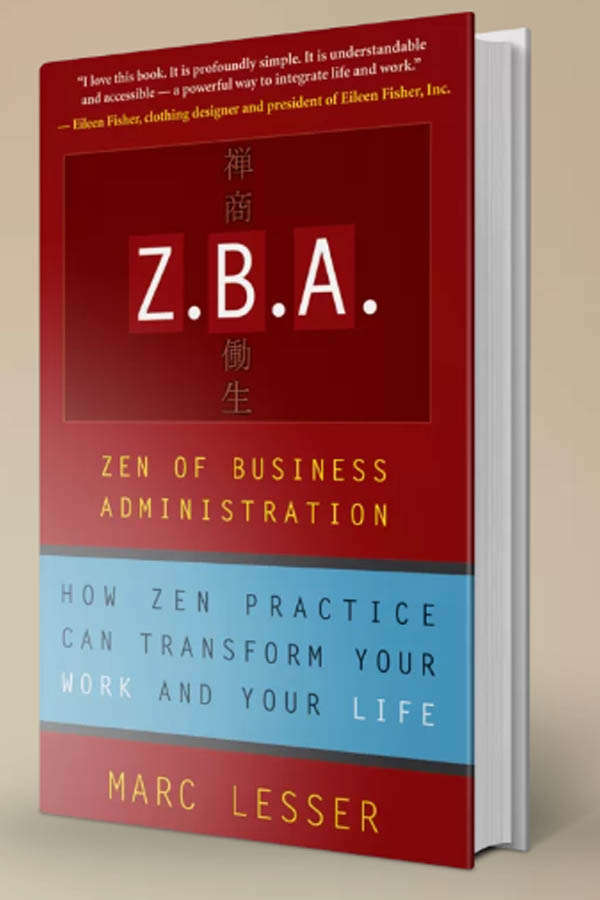
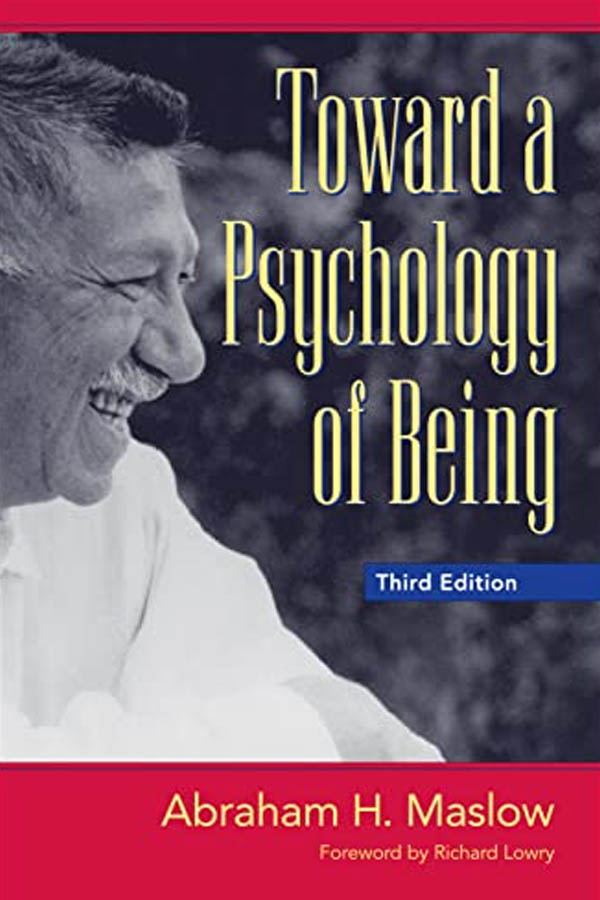
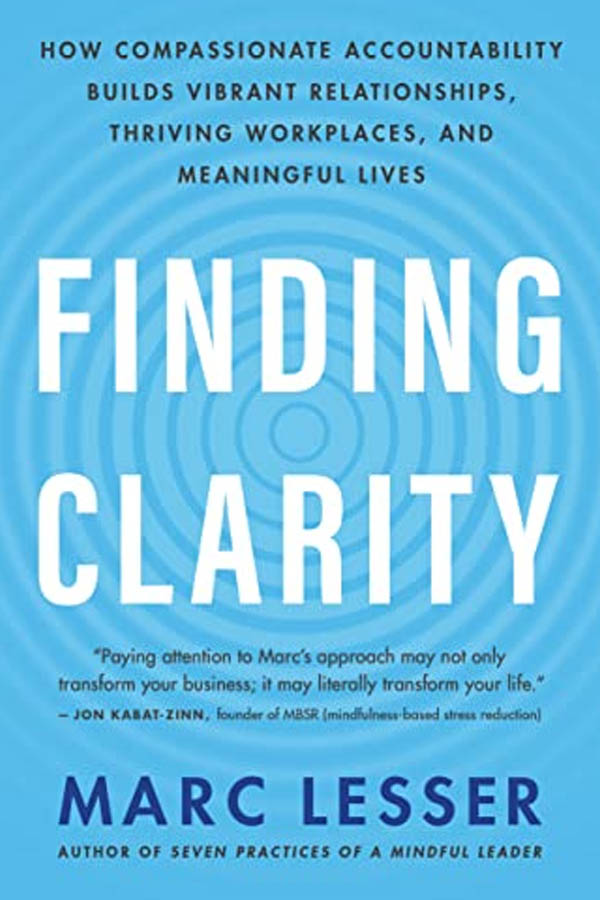
0 comments
Leave a comment
Please log in or register to post a comment